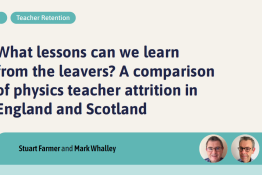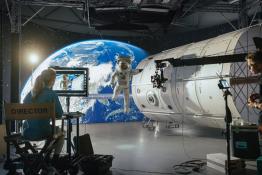Navigating Nature of Science misconceptions in the classroom
Issue 394 | Page 15 | Published Jul 2025
Description
Mary O’Donnell, Thomas McCloughlin and Cliona Murphy explore three common NoS misconceptions and ideas for dispelling them.
Further Reading
Teaching the Nature of Science; Three Critical Questions by Randy L. Bell. National Geographic. www.ngspscience.com/profdev/Monographs/SCL22-0449A_SCI_AM_Bell_lores.pdf
References
Abd-El-Khalick, F. and Lederman, N. G. (2000) Improving science teachers’ conceptions of nature of science: a critical review of the literature. International Journal of Science Education, 22(7), 665–701. https://assess.ucr.edu/sites/default/files/2019-02/abd-el-khalicklederman_2000.pdf
Abd-El-Khalick, F. and Lederman, N. G. (2023) Research on teaching, learning, and assessment of nature of science, In Handbook of Research on Science Education, ed. Lederman, N. G., Zeidler, D. L. and Lederman, J. S. Vol. III, pp. 850–898. Routledge.
Akerson, V. L., Buzzelli, C. A. and Donnelly, L. A. (2008) Early childhood teachers’ views of nature of science: the influence of intellectual levels, cultural values, and explicit reflective teaching. Journal of Research in Science Teaching, 45(6), 748–770.
Allchin, D., Møller Andersen, H. and Nielsen, K. (2014) Complementary approaches to teaching nature of science: integrating student inquiry, historical cases, and contemporary cases in classroom practice. Science Education (Salem, Mass.), 98(3), 461–486. https://shipseducation.net/tnos/library/Allchin-Andersen-Nielsen-ComplementaryNOS.pdf
Eastwell, P. (2014) Understanding hypotheses, predictions, laws, and theories. Science Education Review, 13(1), 16–21. https://files.eric.ed.gov/fulltext/EJ1057150.pdf
Lederman, N. G. (2007) Nature of science: past, present, and future. In Handbook of Research on Science Education, ed. Abell, S. K., Appleton, K. and Hanuscin, D. 1st edn. pp. 831–879. Focal Press.
Lederman, N. G., Abd-El-Khalick, F., Bell, R. L. and Schwartz, R. S. (2002) Views of nature of science questionnaire: toward valid and meaningful assessment of learners’ conceptions of nature of science. Journal of Research in Science Teaching, 39(6), 497–521.
McComas, W. F. ed. (1998) The Nature of Science in Science Education: Rationales and Strategies. Kluwer.
McDonald, C. V. (2010) The influence of explicit nature of science and argumentation instruction on preservice primary teachers’ views of nature of science. Journal of Research in Science Teaching, 47(9), 1137–1164. https://citeseerx.ist.psu.edu/document?repid=rep1&type=pdf&doi=23cf4e6c060afab66f556de2c3ce454a310a9519
Murphy, C., Smith, G. and Broderick, N. (2021) A starting point: provide children opportunities to engage with scientific inquiry and nature of science. Research in Science Education (Australasian Science Education Research Association), 51(6), 1759–1793.
More from this issue
TIMSS is a large-scale four-yearly international assessment of mathematics and science performance, attitudes and reported experiences. TIMSS...
This article draws on the studies into why physics teachers in England and Scotland had left teaching (Farmer and Whalley, 2025; Whalley, 2024)...
Michael Hal Sosabowski suggests critically analysing science in films to encourage healthy scepticism.
References
...




